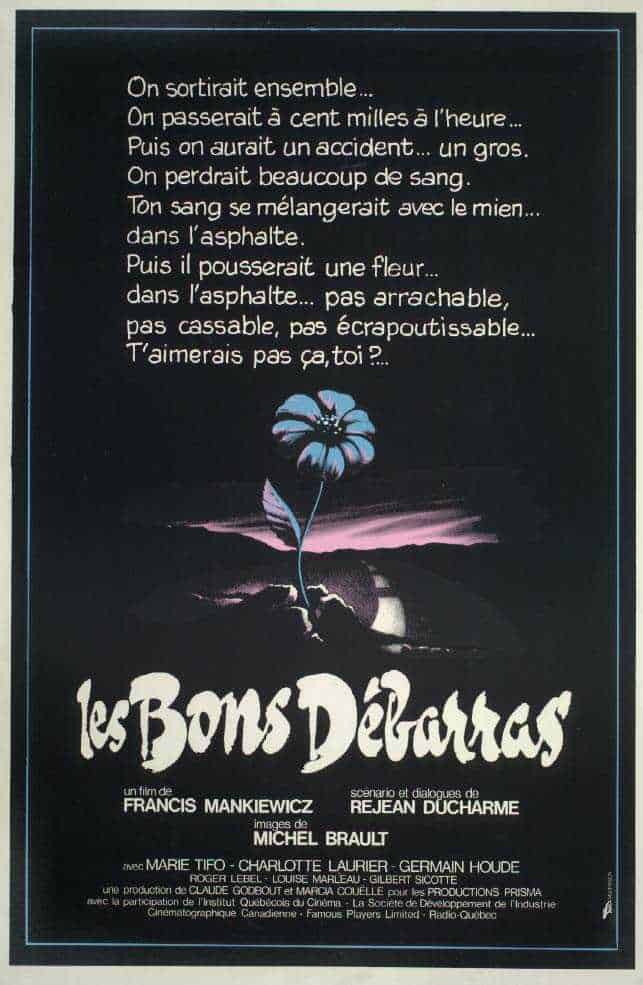If I had to pick the novels that had the biggest effect on me, “L’Hiver de Force” from French Canadian genius Rejean Ducharme would be right up there. Reading that and other books from Ducharme, it was as if he had found the words to describe intelligently and poetically the way I felt about the things of life. “Les Bons Débarras” was Ducharme’s first foray into screenwriting. We can feel his spirit through the film, but it doesn’t have the same power as his literature.
Marie Tifo stars as Michele, a tired woman who ain’t that young anymore. Maybe you could compare her to Blanche DuBois (from “A Streetcar Named Desire”). She runs a little business which cuts down trees, chops it in logs and deliver them to people for heating. It’s not such a bad job, but what’s difficult is her family life. She takes care of her brother Ti-Guy (Germain Houde), who’s all grown up but still acts like a child, a 180 pounds child who steals money, takes the truck without asking and goes get drunk. And then there’s her teenage daughter Manon (Charlotte Laurier), a confused kid who hates school and tries to find some relief in books an with her dog.
The movie is mostly about their rocky relationship, which constantly goes back and forth between clumsy tenderness and violent arguments. Manon loves her mother passionately, so much that she can’t stand seeing her dating careless losers like that cop Maurice. At least her ex (Gilbert Sicotte) is a fun guy who gives cigarettes and pot. So Manon and her mom are always fighting, and it sends them both into emotional distress. Michele can’t sleep, or she feels guilty, or angry, and Manon goes from angst to affection. All the while, Ti-Guy entertains destructive behavior, which is bound to get him into trouble…
I’m telling you, this is not an easy film. It’s blunt and confused, but only because that’s how the characters feel. “Les Bons Debarras” was directed by Francis Mankiewicz, who gives the film a strong emotional core and gets great acting from the leads. And then there’s Ducharme’s exquisite dialogue, which finds poetry in unexpected places. The characters are flawed but endearingly human, and Tifo, Houde and Laurier are all convincing and touching. Through the film, you can feel Ducharme’s characteristic uneasiness in society. Here’s a guy who probably can’t fit in the restrictions of life, and his characters share that feeling. Michele does what she’s supposed to, but she only feels wasted and torn apart for it. Manon knows our world demands effort and performance, but she doesn’t feel at her place at school and she would like just to be with her mother in the middle of nowhere. As for Ti-Guy, he tries to find a way out of reality through madness and alcohol…
Like Ducharme’s novels, this is a film about people who refuse to leave their childhood, or who did and feel shattered. It’s an affecting, memorable film, a must-seeif you don’t mind being bummed down. Anyway, like Roger Ebert says, good movies are never depressing; it’s the bad ones that always are.

